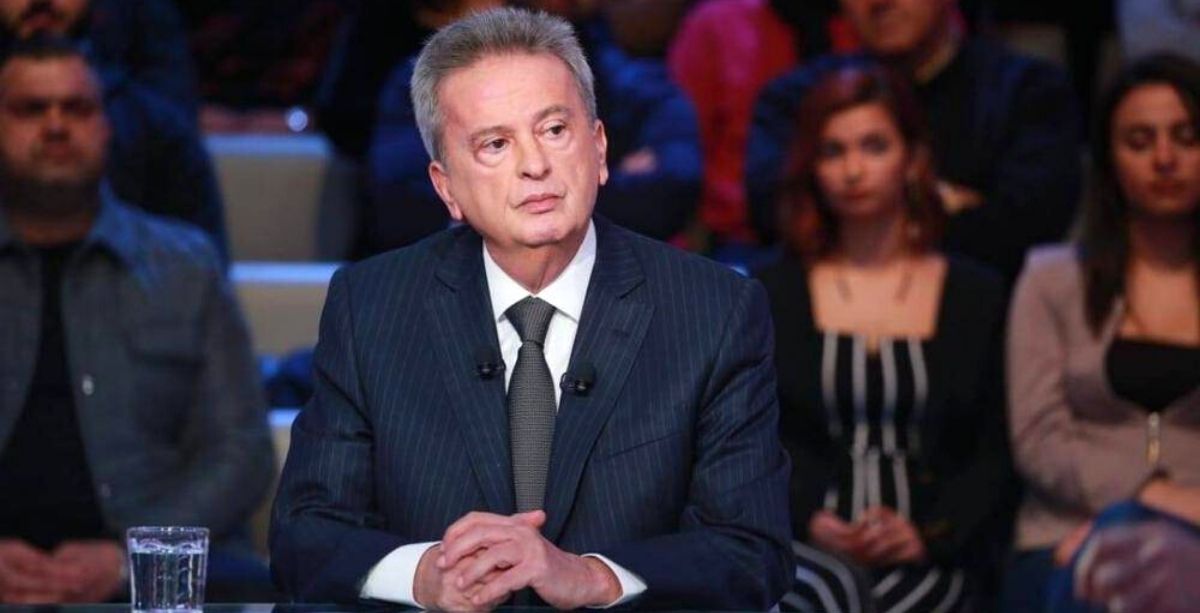The Governor of the Central Bank of Lebanon, Riad Salameh, has affirmed that depositors’ money is safe in Lebanon, announcing that depositors will be able to receive $50,000 by the end of the coming month.
Salameh‘s remarks came during an interview with Al-Hadath on Monday night.
On Capital and the Crisis
“The banking system has not collapsed, and banks have not gone bankrupt,” he proclaimed during the interview, adding that depositors’ money, which he said still exists, would become endangered only when banks go bankrupt.
Recovering people’s deposits would need the formation of “a government that would restore international trust,” Salameh explained before emphasizing that “a government of reforms, independents, and specialists are necessary to save Lebanon.”
He denied that the Banque du Liban (BDL) is the basis of the crisis, and explained that outbound transfers from Lebanon do not pass through the BDL.
Salameh, who has been Lebanon’s Central Bank governor since 1993, revealed that he had asked the so-called “Three Presidents” (the President, the Prime Minister, and the Speaker of Parliament) for the green light to regulate the outflow of capital and that they refused to provide it.
“When I asked for cover to pursue the exit of money, they attacked me, saying it was unconstitutional.”
The money that has been withdrawn in Lebanon since October 2019 is estimated at around $3.5 billion, $2 billion of which have remained after their withdrawal in Lebanon, Salameh revealed.
“$1.5 billion of the money has exited [Lebanon] since October 2019, including money from foreign banks,” Salameh continued, adding that $230 million were transferred from Lebanon to students abroad within a year.
The official reiterated that if a government were to be formed, “the depositor would receive his money more quickly.”
The Audit, Al-Qard Al-Hassan, and Deposits
On the forensic audit of the BDL, Riad Salameh said that the Central Bank has done everything it is required to do and handed the documents over to the Finance Ministry.
“The audit is important and logical, but it doesn’t mean that it can solve the crisis alone,” he noted.
From there, he went on to address Hezbollah‘s Al-Qard Al-Hassan, which he said is originally a social institution and is not licensed by the Central Bank. As such, he noted that the Central Bank has no power with respect to this institution.
“The issue of money laundering with Al-Qard Al-Hassan that an American report, which we’ve known about for days spoke about, will be verified.”
The Central Bank Governor then revealed that with the end of June, $50,000 will be paid to depositors, “$25,000 cash in U.S. dollars and $25,000 in Lebanese pounds at the market exchange rate.”
This, he said, “will solve matters entirely for small depositors, whose number exceeds one million and 30 thousand accounts,” and “confirms that the work done by the Central Bank is silent but does the necessary work to restore confidence in the sector and attract the currencies that exist in houses.”
Finally, Riad Salameh pointed out that the Three Presidents had asked him to accept the renewal of his term and to remain in his position.
He claimed that they tried to use him as “a scapegoat” in this crisis, attacking him to burden him with “people’s indignation” because “I’m not a politician and I do not have a party.”
